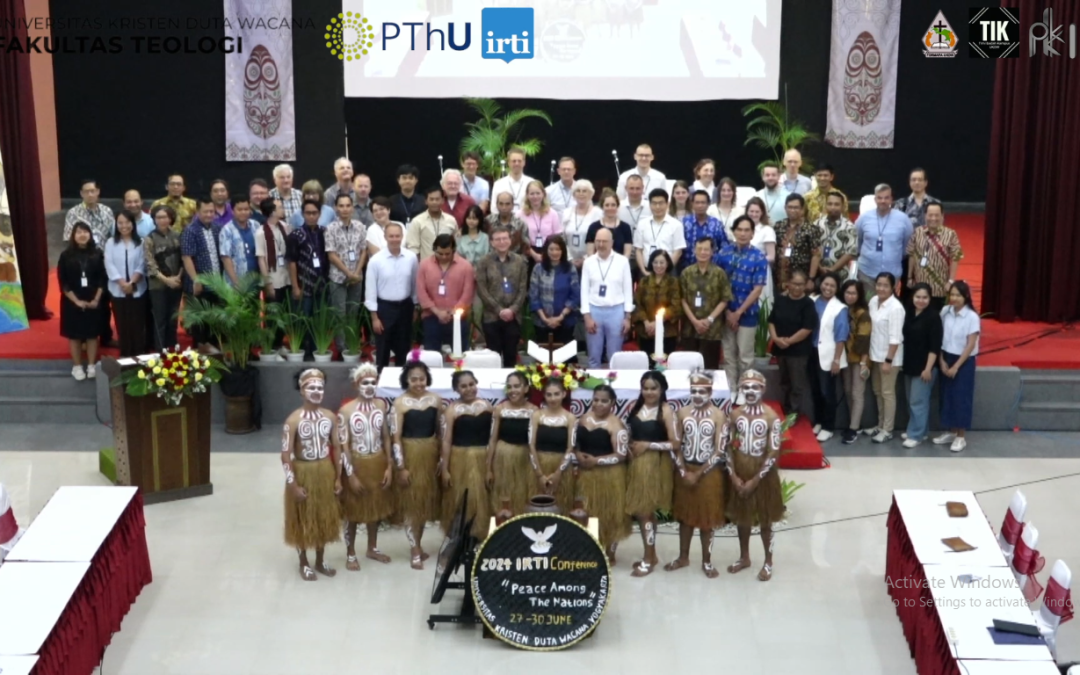



Under the theme “Peace among the Nations: Reformed Theology and Geopolitical Conflicts,” the 15th Biennial International Conference of the International Reformed Theological Institute (IRTI) took place at Universitas Kristen Duta Wacana (UKDW) in Yogyakarta. The event, attended by 49 participants from countries including the Netherlands, USA, United Kingdom, Hungary, Germany, Mexico, South Africa, Romania, Ukraine, and Egypt, kicked start on June 27, 2024 and will be concluded on June 30, 2024.
This international dialogue event, organized by IRTI—a global network of theology scholars—invited participants to study Reformed Theology while considering contemporary global contexts and questions in an ecumenical spirit. This year’s conference featured lectures, paper presentations, and discussions that addressed urgent theological questions: How are geopolitical conflicts, including their religious dimensions, understood theologically? What is the political responsibility of the church? Under what conditions can the use of military force be justified? What is meant by just peace, and how can it be achieved amid significant injustice and aggression?
Dr. Pieter Voz, Director of the IRTI Management Team, noted that this year’s theme was influenced by the ongoing conflicts in Ukraine and Gaza. “The wars in Ukraine and Gaza have brought the themes of peace and war back to the theological agenda. These conflicts particularly impact those directly involved and victims of aggression and terror. At the same time, these conflicts have global political, economic, and social impacts. Although other countries are not directly involved in the war in Ukraine, strong political and military support from many countries for Ukraine’s resistance against Russian aggression shows the geopolitical dimensions and impact of this conflict. Similarly, the war in Gaza has divided societies worldwide,” he said.
Addressing the situation, Pieter emphasized the significant role of religion, both positively and negatively. “On one hand, religious motives justify aggression and terror, even declaring ‘holy war.’ On the other hand, religion motivates building peace and reconciliation between enemies and across national or ethnic boundaries. Religious traditions also serve as an important source of moral consideration on whether and under what conditions the use of military force can be justified to protect innocent people from brutal aggression. All this demands deep theological reflection with new urgency,” he stated.
Regarding UKDW’s involvement, Rev. Devina Widiningsih, M.Th., Program Coordinator, highlighted the university’s commitment, especially the Faculty of Theology, to conducting critical and in-depth theological reflection on both local and global issues. “Through UKDW’s involvement in this IRTI conference, UKDW can be seen as a site of reflection to determine the basis and generate fresh and contextual strategies as alternatives to conflict resolution. Furthermore, this moment should also be seen as an essential site of relationships and connections in our efforts to move together in realizing world peace,” she said. According to Devina, the follow-up to this activity is expected to extend theological reflection beyond academic discussions to the community and grassroots in simpler forms. [ai/trans.drr]
